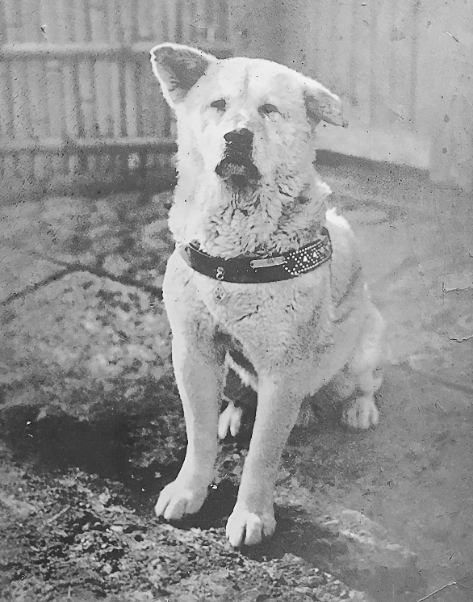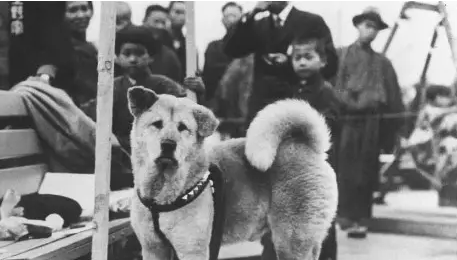Behold the dog in the photograph—his name is Hachiko.
In 1923, a Japanese citizen named Isaburo discovered a small puppy named Hachiko inside a box within one of the train cars he commuted in daily. He took the pup into his home and raised him as his own. As the days turned into years, Hachiko grew alongside Isaburo’s routine. Every day, Isaburo would leave for work, boarding the train, and Hachiko faithfully accompanied him to the station. There, the devoted dog would patiently wait until Isaburo’s return, a span of approximately ten hours. This heartwarming bond caught the attention of many, leading to the creation of a statue that still stands at the entrance of Shibuya Station in Japan.
Loyalty—a word laden with significance, transcending mountains and surpassing the lengths of ropes. Its meaning encompasses sacrifice, devotion, sincerity, selflessness, and unwavering fidelity. On May 21, 1925, tragedy struck when Professor Ueno, Hachiko’s beloved master, suffered a cerebral hemorrhage and passed away while teaching a class. Oblivious to this heart-wrenching loss, Hachiko embarked on his usual journey to Shibuya station, faithfully awaiting Ueno’s arrival.
Days turned into weeks, and weeks into months, yet Ueno failed to return. Heartbroken, Hachiko would wait for several hours before reluctantly leaving. However, the undying loyalty that resided within his canine spirit propelled him to return to Shibuya station the next day, and the day after that. For nearly ten years, Hachiko maintained his steadfast vigil, arriving at Shibuya station promptly at 3 pm each day. Unable to return to Ueno’s home, he found solace in the nearby residence of Ueno’s gardener, Kuzaburo Kobayashi.

The extraordinary tale of Hachiko became an inspiration for the people of Japan. They viewed his unwavering devotion as an embodiment of familial loyalty—an example that all should strive to emulate in their relationships. Hachiko was affectionately referred to as Chuken-Hachiko, meaning “faithful Hachiko.” People from all corners of Japan flocked to Shibuya to offer him treats, and in 1934, a bronze statue of Hachiko was erected at the main gate of Shibuya station. The unveiling of the statue was graced by Hachiko himself as the guest of honor.
At the age of eleven, on March 8, 1935, Hachiko passed away. His lifeless body was discovered on a street not far from Shibuya station. He had succumbed to cancer and a filarial worm infection. Hachiko’s remains were tenderly carried back to Shibuya station, where mourners, including Ueno’s former colleague and station staff, paid their respects.
The gate where Hachiko patiently waited is now known as “Hachikō-guchi,” or “The Hachikō Entrance” in Japanese. Additionally, one of the train lines bears the name “Hachiko Line” in his honor.
Hachiko’s unwavering loyalty left an indelible mark on the world, resonating as a testament to the power of devotion and faithfulness. His story serves as a timeless reminder of the profound bond that can exist between humans and animals, inspiring generations to value and cherish the unbreakable connections we share.
